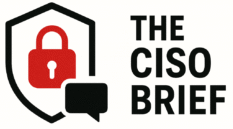Essential Insights
-
Critical Vulnerability: Mitel has announced patches for a serious MiCollab flaw—a path traversal issue in the NuPoint Unified Messaging component—allowing remote, unauthenticated access to user and network information.
-
Affected Versions: The vulnerability impacts MiCollab versions 9.8 SP2 (9.8.2.12) and earlier, with patches available in 9.8 SP3 (9.8.3.1) and later. MiCollab 10.0.0.26 and newer versions are not affected.
-
Exploitation Risk: Over 20,000 MiCollab instances are exposed online, and exploiting this flaw could lead to data breaches and unauthorized administrative actions, posing significant risks to organizations.
- Historical Context: This flaw is a bypass of a previously patched vulnerability (CVE-2024-41713), with CISA warning about its exploitation in the wild alongside another related vulnerability.
Problem Explained
This week, Mitel announced critical patches addressing a severe vulnerability within its MiCollab platform, specifically affecting the NuPoint Unified Messaging component. The flaw, identified through research by Dahmani Toumi, is a path traversal issue that can be exploited remotely, allowing unauthorized access to non-sensitive provisioning information and enabling malicious actors to carry out administrative tasks on the MiCollab Server. MiCollab versions up to 9.8 SP2 are at risk, while updates in versions 9.8 SP3 and later mitigate this issue. Notably, this vulnerability bypasses an earlier patch related to CVE-2024-41713.
The discovery of over 20,000 potentially exposed MiCollab instances using the Shodan search engine raises alarms about the practical implications of this vulnerability, including data exposure and possible service disruptions for organizations relying on this communications tool. The Cybersecurity and Infrastructure Security Agency (CISA) has previously warned that other vulnerabilities in Mitel products, such as CVE-2024-55550, have already been exploited in the wild, emphasizing the persistent targeting of Mitel’s infrastructure by threat actors.
Critical Concerns
The recently disclosed vulnerability in Mitel’s MiCollab platform presents significant risks not only to the immediate users but also to the broader ecosystem of businesses and organizations relying on adjacent services. The flaw, a path traversal issue that permits unauthenticated remote access to provisioning data, can be exploited by malicious actors to launch unauthorized administrative actions, risking data integrity and confidentiality. With over 20,000 instances potentially exposed, the ramifications of a successful attack could reverberate through interconnected networks, leading to severe service disruptions, data breaches, and cascading failures that compromise organizational operations and erode customer trust. Furthermore, the history of exploiting such vulnerabilities underscores a persistent threat landscape, compelling organizations to prioritize vulnerability management and robust cybersecurity measures to safeguard against not only direct attacks but also collateral damage that can ensue when interconnected systems are left vulnerable.
Fix & Mitigation
Timely remediation is essential to safeguarding systems affected by the critical vulnerability in Mitel MiCollab, revealing the potential for remote exploitation that could threaten organizational integrity.
Mitigation Strategies
- Patch Application: Immediately apply the latest firmware updates provided by Mitel.
- Access Restrictions: Implement strict network access controls to limit exposure of MiCollab instances.
- Firewall Configuration: Adjust firewall rules to reduce unnecessary inbound traffic targeting affected instances.
- Monitoring Systems: Establish robust monitoring to detect unusual activity indicative of exploitation attempts.
- Incident Response Plan: Develop and rehearse an incident response plan tailored to this specific vulnerability.
NIST CSF Guidance
The NIST Cybersecurity Framework underscores the necessity of continuous assessment and mitigation strategies against vulnerabilities. For specifics on managing such vulnerabilities, organizations should refer to NIST SP 800-53, focusing on the controls surrounding system integrity and incident response.
Explore More Security Insights
Discover cutting-edge developments in Emerging Tech and industry Insights.
Learn more about global cybersecurity standards through the NIST Cybersecurity Framework.
Disclaimer: The information provided may not always be accurate or up to date. Please do your own research, as the cybersecurity landscape evolves rapidly. Intended for secondary references purposes only.
Cyberattacks-V1

